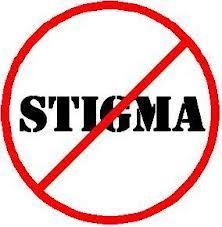 Poor, unbalanced press coverage of mental health issues fuel stigma and reduce the quality of life for sufferers. Mental Health Associations say that media covrage has a direct impact on the lives of people diagnosed with psychiatric disorders. It’s no wonder that society finds the issue so hard to deal with when their politicians, for example, do not share their own experiences with the publice. Mental illness is seen as a weakness and the strength to deal with the illness is not embraced or praised in the same way that an individual recovering from a physical illness is praised. Even worse, is is seen as discrediting a person’s judgement, something that is fatal to a political career. This misguided view makes it much more important for politicians discuss their own personal battles. Of course they do not have to share all the details with the public.
Poor, unbalanced press coverage of mental health issues fuel stigma and reduce the quality of life for sufferers. Mental Health Associations say that media covrage has a direct impact on the lives of people diagnosed with psychiatric disorders. It’s no wonder that society finds the issue so hard to deal with when their politicians, for example, do not share their own experiences with the publice. Mental illness is seen as a weakness and the strength to deal with the illness is not embraced or praised in the same way that an individual recovering from a physical illness is praised. Even worse, is is seen as discrediting a person’s judgement, something that is fatal to a political career. This misguided view makes it much more important for politicians discuss their own personal battles. Of course they do not have to share all the details with the public.
Here is the secret that nobody tells you. Most people that suffer from a mental illness are not useless and ineloquent; they are often high-functioning, high achieving and higly admirable individuals.
Depressions is a mental illness and many people suffer from this ailment, yet, we hardly ever hear of a politician or another public figure referring to the days that he simply cannot get out of bed, or …… that he never wants to get out of bed again.
A survey showed that a large percentage of all people felt that coverage of mental health issues over the past years has been unfair, unbalanced or negative. Half said that media coverage had a negative effect on their own mental health, with many others feeling more depressed and anxious as a result. About 9% said that adverse press coverage made them feel suicidal. Nearly all of them said that their neighbors had behaved in a hostile way towards them because they had probably been influenced by negative newspaper and television reports.
However, regional newspapers, TV news and radio news programs reported more fairly than the national media. The media can do a whole lot to improve public education and foster the idea of decreasing the stigma and improve the numbers of those who accept people suffering from a mental illness.
Public education on mental health is imperative. We need to develop programs to make our communities safer. I also believe that others things have to be done, mainly, more public education on mental health to reduce stigma by increasing mental health services.
Our health care system needs to continue integrating mental and physical health and our society must accept that pursuing mental health care is something quite acceptable and ordinary.
To me, it is important to get politicians, mental health professionals as well as parents to work together as this issue must be addressed.
